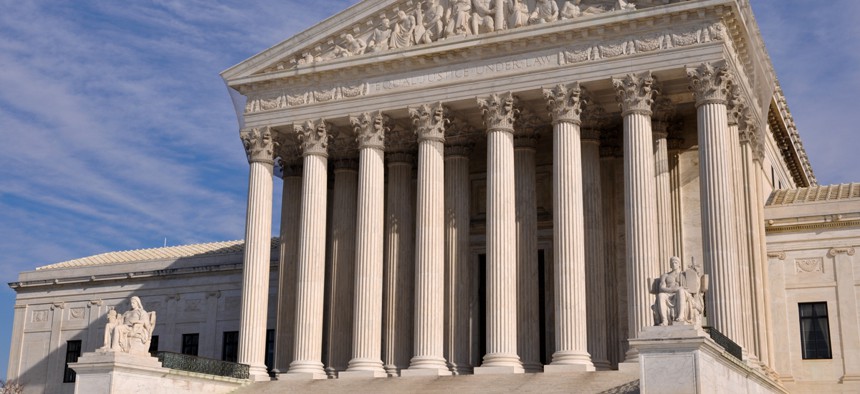
Brandon Bourdages/Shutterstock.com
The Supreme Court Rules in Favor of Obamacare Insurance Subsidies
The court says a challenge based on an ambiguous word was "unpersuasive."
Obamacare dodged yet another existential threat Thursday at the Supreme Court, making the law's survival more assured than ever before.
In a 6-3 ruling written by Chief Justice John Roberts, the Court upheld Obamacare's insurance subsidies nationwide, rejecting a lawsuit that had aimed to ax those payments to people in 34 states.
Thursday's ruling will surely come as an enormous relief for the White House—President Obama has said the Court shouldn't even have taken the case. If the ruling had gone the other way, more than 6 million people likely would have lost their coverage, and insurance markets could have been upended in as many as 34 states.
And, even though it's a pro-Obamacare ruling, the decision is also a relief for Republican governors, lawmakers, and presidential candidates.
Many in the party feared that, if the Court had struck down Obamacare's subsidies, the GOP would have shouldered the blame for chaos in insurance markets—which would have fallen primarily in Republican-led states. Getting the party to coalesce around a fix—even temporarily restoring the biggest, most expensive piece of Obamacare—would have been difficult, to say the least.
The ruling in King v. Burwell comes almost exactly three years after the Court upheld Obamacare's individual mandate, in the throes of the 2012 presidential race, making this the second time the high Court has passed up an opportunity to kill or substantially weaken the health care law.
King v. Burwell was the last legal challenge on the horizon—at least for now—with the potential to tear apart a foundational piece of the Affordable Care Act.
There are still lawsuits challenging some of the law's cost-cutting measures, and challenges to its contraception mandate persist, but none of those is a real threat to the law's fundamental structure or its ability to work as intended.
And, as more and more people sign up, legislative repeal becomes less and less practical. Roughly 10 million people were covered through the law's exchanges at the beginning of this month.
The Congressional Budget Office estimates that the exchanges will ultimately cover about 22 million people, on top of some 14 million more who will gain coverage through the law's Medicaid expansion.
(Image via Brandon Bourdages/Shutterstock.com)
NEXT STORY: Environmentalists Fear the FDA’s Trans Fats Rule






